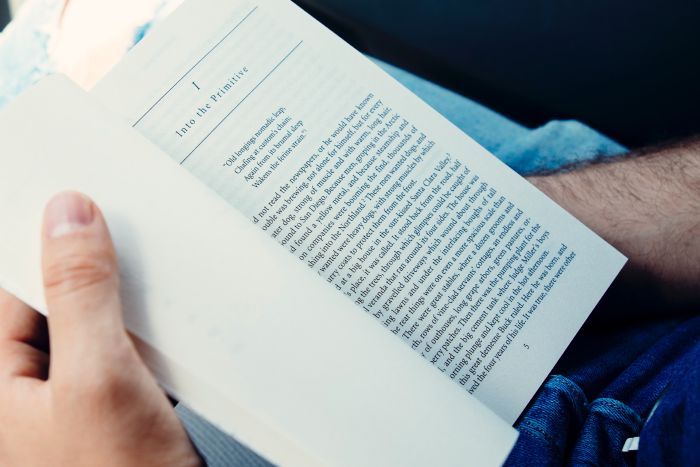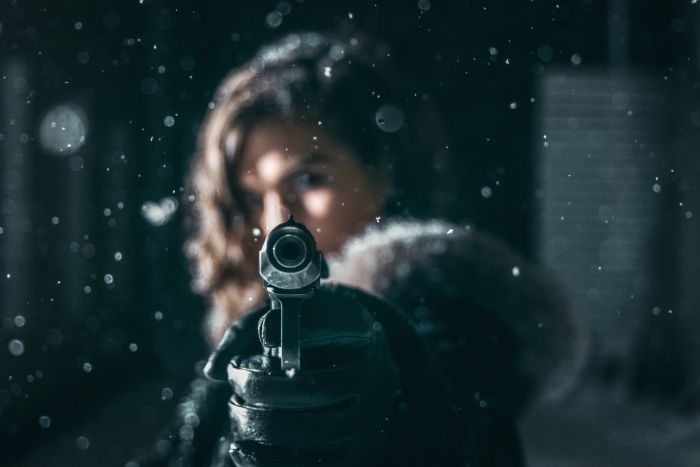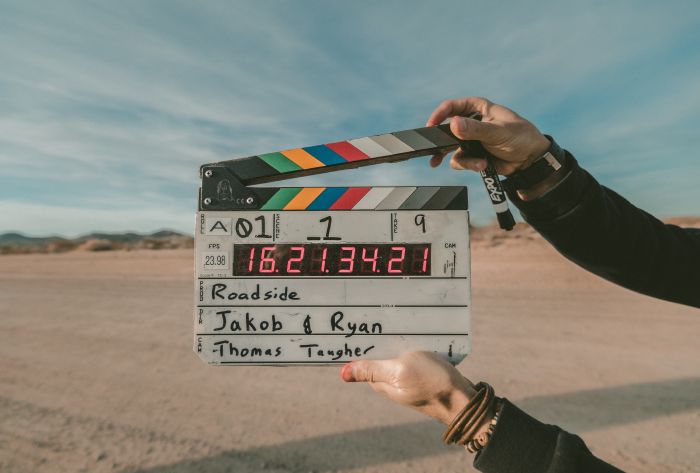Dialogue is such a vital part of your novel, and if you’ve read anything in the last few years, you’ll know that bad, awkward conversations can completely ruin a book. But how do you write dialogue?
To write dialogue, begin by writing a basic conversation. Get the words on the paper so you know what needs to be said, then read it aloud to see if it sounds authentic. Finally, work with a partner and read the scene, making notes on parts that don’t seem to work right.
The key to good dialogue is to make it sound like something someone would say. But that’s not always as easy as it sounds.

Why Dialogue Is So Important
I don’t think I’ve ever read a book without dialogue - fiction, that is. How we talk to each other is key to understanding our motives, and without it, your characters will lay flat on the page.
Dialogue is so important because it allows the reader insight into the characters and how the story is progressing. It will help make your conflict more real when spoken in their own words and can even help build suspense. In some cases, it can be used to provide hints toward a plot twist.
Dialogue is so important for so many reasons, including but not limited to:
- Dialogue will help the reader to better understand your characters. This includes the language they use and how they react to certain situations.
- Dialogue will make your conflict more intense. The conflict could be an external fight between characters or something that your protagonist is dealing with internally. The proper dialogue will make it more real.
- Good dialogue can build suspense and set the framework for plot twists. This could be an off-handed comment or even an acknowledgment of an evil plot.
- Dialogue is key to keeping pace. A book without dialogue will be challenging to get through, with lots of descriptions and not a lot of real insight into the characters and how they are affected by the overall story.
Can You Have Too Much Dialogue?
You can’t have too much dialogue, in my opinion, as reading a conversation is much more appealing than pages of room descriptions and hundreds of words dedicated to the protagonist’s boyfriend’s brother’s outfit. It is a great way to give little details and allow your characters room to grow.
Dialogue is the best way to show - not tell - the reader who your characters are and how they respond to conflict.
It’s easy to say, “he was angry by the news and lashed out without thinking.”
Obviously, the above line would not be read alone; instead, it would be surrounded by some context. But does that tell you how he’s feeling? We don’t know how angry or how he lashed out. We don’t get to see inside his head, and it feels less effective.
Instead, why not try some dialogue: “Jesus Christ, Marie! What the hell were you thinking? This is gonna get me killed!”
If he’s really angry, would he be silent? Most people would say something, right?
How to Start Writing Dialogue
To start writing dialogue, begin with a basic outline of the conversation. It doesn’t have to be polished; just get the key points down, so you know what the characters are trying to say. Don’t worry about “he said, she said” yet. Instead, focus on the actual content and what has to be there.
If you struggle with writing dialogue, this will likely be the most challenging part, and you might find yourself looking to long descriptions instead. And there’s nothing wrong with that! But as mentioned above, good dialogue can help a story move along and bring your reader closer to the characters.
Example of Writing Dialogue
In my book, An Easy Target, the main character is a woman named Grace. She’s a professional fixer who likes to fight dirty and doesn’t have time for playing games. She’s on the hunt for a missing girl named Kasey and, in the snippet below, has arrived at Kasey’s dorm room to speak with her roommate. She’s looking for answers and doesn’t have time to coddle some college girl.
(This is just the dialogue to show you how it can be used to inform the reader. In the book, I have additions around and observations.)
“God, what?”
“I’m here about Kasey. Clean yourself up so we can talk.”
“Uh, I haven’t seen Kase in like, forever. She just left, you know. Like, she didn’t even say goodbye.”
“But all her stuff is still here.”
“Well, yeah. What was I gonna do?”
“Look, I don’t care about you wanting the place to yourself. You told her sister she left, and that was good. But now I need you to tell me why she left. Because I know you know, Ruby.”
“What are you talking about? I literally just told you. She left and didn’t say goodbye.”
“But you know why she left. You two were friends, right? She was your little model? I don’t believe you don’t know what happened to her. Just give me his name.”
“How did you- I told you-”
“Ruby, I’m not the cops. I’m not going to hold my hands up and believe your bullsh*t, ok? I don’t have a dozen other cases to go back to. All I have is this. I’m here to find Kasey and to find who hurt her. And I know you know. So stop being a little bitch, and tell me what I wanna hear. Because if you don’t, I’m going to the Dean. Then I’m going to your folks.”
“You can’t-”
“Not a cop! Remember? I can do whatever I want. I can make your life hell, Ruby.”
“Look, if I talk to you, I’m dead. Like, he’ll literally kill me.”
“I doubt that.”
Using this dialogue, I think you can see a lot about each of the characters. Ruby is self-centered, impatient, and not willing to talk. Even the language I’ve chosen was specific. Her saying “like” alludes to her young age, and I think you can probably picture her in your mind. Towards the end, her nerves start to show, and you get the impression she’s protecting someone out of fear.
Grace, on the other hand, comes across as a little rude, maybe? Impatient? She barges in and isn’t willing to let this girl lie to her. She knows that Ruby has answers, and she’s not leaving without them.

Break Down the Dialogue Into Key Components
Without the above dialogue, it would be almost impossible to have this scene or show what each character is thinking and get any sense of what’s going on.
But, how did I write it?
If we break it down, it might look something like this:
- Grace is there to interrogate Kasey’s roommate. She’s already frustrated and impatient and wants to get to the truth as fast as possible. She’s not going to be nice, and she’s not leaving without answers.
- Ruby is caught off guard and hesitant to talk. She’s going to lie and pretend not to know anything before getting defensive and a little scared.
- Grace is going to push. She knows that Ruby has the truth, and she just needs to hear it, no matter what it takes.
- Ruby isn’t willing to talk because she’s too self-centered to understand what’s really going on. She’s going to push back but will ultimately give Grace the name.
Once I had the general idea of who Ruby was - typical young college girl with nothing but herself on the brain. She’s a YouTube ‘star’ and likes to party - it was easy to hear how she would sound.
How to Create a Character’s Voice
If you find that you have a character in mind but don’t know how to find their voice, try watching movies or TV shows with similar personalities. Watch how they move and how they talk, and more importantly, take note of what they say. Do they use a lot of curse words? Do they have an accent? Do they drop letters or use a lot of slang?
I’m willing to bet that a girl like Ruby would be more like to use “gonna” over “going to,” as would most people. It’s essential to know the difference and use the right kind of language with your different characters.
How to Polish Your Dialogue
Once you have a basic idea of what your dialogue should say, you’re going to need to flesh it out. Turn that thought: ‘Grace is going to push,’ into words in the character’s voice: “Not a cop! Remember? I can do whatever I want. I can make your life hell, Ruby.”
To polish your dialogue, you need to know your characters inside-out. The main characters should be so familiar to you that you can hear their response to certain situations. Write it out and then read out loud to be sure it fits and sounds authentic. It will get easier as your novel progresses.
At first, writing your character’s dialogue might be a struggle, but the more you write and the further you get into the story, the easier it will become.
Edit Dialogue After the First Draft
By the time you have a first draft, you should be at ease with your characters and know their every inner thought. With that in mind, once you’ve finished your first draft, you should be able to easily go back and edit the dialogue with the newfound familiarity.
Read It Out Loud
No matter how it sounds in your head, reading aloud will help you pick up on awkward phrasing or slang that might not fit.
For example, let’s take a look at this line from above:
“I’m here about Kasey. Clean yourself up so we can talk.”
Now, that has been edited and printed, so I’m pretty happy with it. But if I hadn’t gone back over it, it could have been:
“I am here about Kasey. Clean yourself up so that we can talk.”
There’s nothing actually wrong with that line. It means the same, and the same message gets across. But if you read it out loud, can you hear how forced it sounds. “I am here…” rather than “I’m here…”
Most people don’t speak in the Queen’s English, and if you’re writing that way, it will come across as inauthentic and awkward.
Try Reading with a Partner
Reading with a partner might seem awkward and scary, but it is a fantastic way to hear how your words sound out loud and from another perspective.
You know exactly how it should be phrased and what the tone should be, so hearing it from someone else should help you pick up on things that don’t fit.

How to Write Dialogue That Sounds Authentic
When I’m writing my novels, I like to think of them like movie scripts. They play out in my head as I write, and I hear the dialogue as it comes. With that in mind, you need to have a clear voice to listen to.
To write dialogue that sounds authentic, watch movies or TV shows with similar characters. If you’re writing YA, watch some teen shows or films to pick up on slang and phrasing. If you’re writing a thriller, watch some detective shows to hear how they speak when working on a case.
Watching TV as homework might sound silly, but if you’re a 30-40 something-year-old writing YA, you need to be able to sound young. I don’t know about you, but as an Elder Millenial, I’m lost with a lot of the “Gen-Z speak.”
For those writing detective novels, True Crime documentaries are invaluable. You can listen to real detectives talking about real cases and will learn what they call victims and suspects and how they discuss everything involved. It will be super helpful to your writing and can make it truly authentic.
Don’t Fill the Page with Small Talk
Small talk can be necessary, and in some cases, you can have entire conversations with it. But is it vital to the story? Does it further the plot or help the reader to better understand your characters? I doubt it.
If you’re trying to convey nerves or an uncomfortable situation, small talk is perfect. It’s natural, after all, and how many of us would be in unfamiliar situations. But don’t overuse it to the point that every new dialogue starts with someone asking how the other person is or commenting on the weather.
Practice Writing Dialogue with Short Strories
Short stories are a great way to practice your dialogue, and they can be about anything! In fact, I highly recommend making them mundane so that you can get the basics of dialogue down with small talk.
I know I just said that you shouldn’t use small talk too much, but it’s something most of us are familiar with, and it a great place to start when it comes to writing dialogue. Think about that interaction you had yesterday at the coffee shop and try to recreate it on paper. If you can make small talk sound authentic, you should be able to work your way up from there.
Write in a Genre That You Read
You’ve probably heard that you should “write what you read,” and that goes for both the storytelling and the dialogue. If you don’t know the genre properly, how can you create an authentic novel for readers?
As a Brit, I can’t tell you how exhausting and frustrating it is to hear or read “British” dialogue that’s clearly been written by a non-Brit. I’m all for writing new things and trying to get out of your comfort zone, but you have to do the research.
When it comes to dialogue, if you’re unfamiliar with the genre, you might find it difficult to come across as natural. Romance writers, for example, can make a story steamy and sexy, using dialogue to further their plot and the desire for the characters. However, for people who haven’t read any romance, writing sexy scenes and including dialogue can be a nightmare.
Final Thoughts on How to Write Dialogue
Writing dialogue can be challenging - especially if you’re new to the writing game. The trick is to practice as much as you can, and don’t expect it to be perfect the first time around.
To write the best dialogue possible, watch movies and read books in the same genre to get an idea of how the character might sound. Start with a rough outline of what you need to be said, and flesh it out after your first draft when you know your characters better. Finally, read aloud to listen for awkward phrasing.